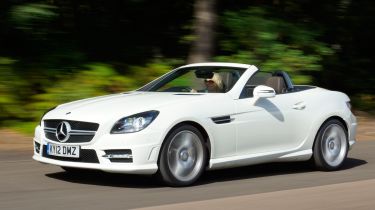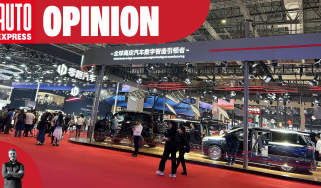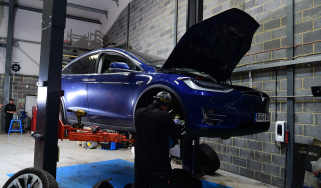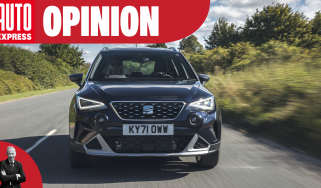Mercedes SLK 250 CDI
Diesel roadster combines punchy torque, good economy and real sports car glamour
Sports car performance and glamorous styling set the diesel SLK apart from the Audi, while its silky gearbox and relaxed character demand few compromises in comfort. But that also means the stiffer chassis and bigger wheels of the AMG model add little to the dynamic package – the standard diesel is more composed and costs £4,000 less.
Over three generations and 16 years, the Mercedes SLK has transformed itself from a fashionable cruiser into a serious sports car – but the latest incarnation has left us cold on previous outings.
There’s bold styling and a new high-quality cabin, but the SLK still lags behind rivals when it comes to delivering thrills on the road. So can this new 250 CDI reverse its fortunes?
On the surface, it’s barely any different to other models – and given how much we like the muscular shape, that’s not a bad thing.
The sweep of the wide rear end, with its swooping LED lights and twin exhausts, is not compromised by the complex folding roof mechanism. Plus, the Mercedes sits a full 57mm closer to the road than the Audi, giving it a purposeful look.
At the front the chunky, squared-off grille echoes the nose of the gullwing SLS supercar, and our Sport test model also comes with 18-inch alloys, an AMG bodykit and lowered suspension, which offers even greater visual impact. Not everyone will like its extrovert looks, but it stands out next to the plainer TT.
Used - available now

2022 Mercedes
EQA
13,731 milesAutomaticElectric
Cash £23,503
2020 BMW
3 Series
57,727 milesAutomaticDiesel3.0L
Cash £22,600
2024 SEAT
Leon
18,270 milesManualPetrol1.5L
Cash £15,600
2023 Vauxhall
Mokka
19,855 milesAutomaticPetrol1.2L
Cash £16,603The good news continues inside, where the smart and modern interior feels every bit as plush as the SLK’s high price tag suggests. While the seats deliver plenty of support, they are also more comfortable than the buckets in the TT, and have greater scope for adjustment.
There’s a real attention to detail evident in the cabin as well, with lovely touches like the chequered dials and aluminium switchgear on the centre console. Plus, extras like the ‘Solar’ red ambient lights (£245) and panoramic vario-roof (£410) all add to the playful sense of theatre in the Mercedes.
It comes marginally better equipped than the Audi, too, as DAB digital radio, USB audio connection and Bluetooth are all standard. However, a closer look at the options list reveals a certain mean-spiritedness – basics like cup-holders and rain-sensing wipers aren’t covered by the list price – even in Sport trim.
Still, you can understand some of the price difference over the Audi when you consider the amount of tech on board – and that folding metal hard-top really adds to the SLK’s versatility. It takes two seconds longer to lower than the TT’s soft-top (at 17 seconds), and reduces luggage space, but there’s a boot separator to ensure you don’t crush your bags. And even with the top down, the Mercedes has a decent 225 litres of load space, as the boot is deeper than the Audi’s.
It was at the track that the 250 CDI really impressed. While the 2.1-litre diesel isn’t a natural choice for a roadster, there’s no doubting its performance. The same engine is also fitted to the bigger CLS, and its 500Nm of torque at 1,600rpm propels the SLK from 0-60mph in a rapid 6.7 seconds.
There is a diesel rattle when cold, but once it’s warm the SLK is more refined than the TT on the move. Less tyre and wind noise enter the cabin at motorway speeds, too, and there’s a sportier exhaust note. The seven-speed auto is also well suited to the engine, kicking down eagerly in sport mode and slushing through the ratios smoothly in slower traffic.
However, the brittle ride of the standard SLK remains. Even though our test car came with adaptive dampers and direct steering as part of the Dynamic Handling Pack (£1,010), it floated over big bumps, crashed into potholes and lacked the precision of the lighter Audi through tighter corners. We would advise opting for the lower trim level and picking smaller wheels for a softer set-up.
Anyone considering buying the 250 CDI over a petrol roadster will also want decent economy – and the Mercedes delivers, with stop-start helping it return 43.1mpg on our test. It should also resist depreciation well, keeping around 58 per cent of its value after three years. The question is whether that’s enough to fend off the cheaper, sharper TT.







